Tertullian, a Latin theologian who wrote in the early third century, was the first to use "Trinity"[8] "person" and "substance"[9] to explain that the Father, Son and Holy Spirit are "one in essence – not one in PersonThe person who used the corresponding Greek word before Tertullian used the Latin word also didn’t use it as trinitarianism does.
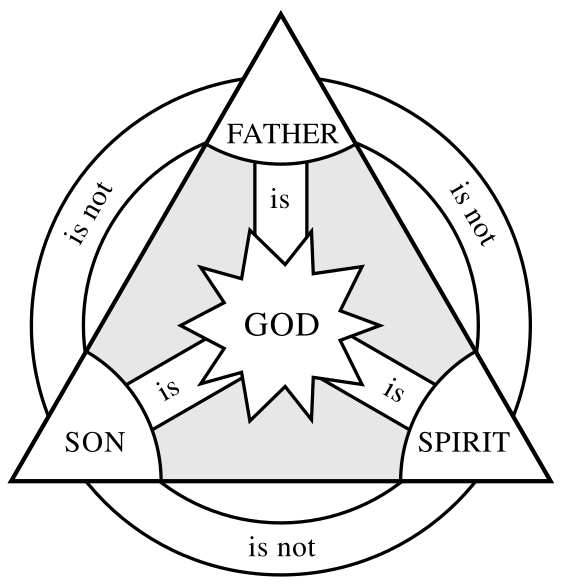
Trinity - Simple English Wikipedia, the free encyclopedia
simple.wikipedia.org
Unitarianism vs Trinitarianism
- Thread starter RLT63
- Start date
-
Welcome to Christian Forums, a Christian Forum that recognizes that all Christians are a work in progress.
You will need to register to be able to join in fellowship with Christians all over the world.
We hope to see you as a part of our community soon and God Bless!
You are using an out of date browser. It may not display this or other websites correctly.
You should upgrade or use an alternative browser.
You should upgrade or use an alternative browser.
- Status
- Not open for further replies.
Tertullian, a Latin theologian who wrote in the early third century, was the first to use "Trinity"[8] "person" and "substance"[9] to explain that the Father, Son and Holy Spirit are "one in essence – not one in Person
Cp. Arius.
There was a time when the Son did not exist.
Own it as trinitarianism, or set Tertullian free from the defense of the Trinity.
Wrangler
Well-Known Member
Oh the desperation to make this personal. That you deny being the son of God necessarily means he is not God, shows you reject logic.I reject your logic maybe
It has nothing to do with me.
God is not limited by your logic. It's not logical to create a man out of dust, a woman out of a rib, have a donkey speak, have a man wrestle an angel, or a virgin give birth. To win a war by marching around a city, or by a man having his hands raised, to flood the whole world or to have your number one enemy write most of the New Testament. God doesn't do logic.Oh the desperation to make this personal. That you deny being the son of God necessarily means he is not God, shows you reject logic.
It has nothing to do with me.
Last edited:
Trinitarians rejected Arius and his belief that there was a time when the Son did not exist.Cp. Arius.
There was a time when the Son did not exist.
Own it as trinitarianism, or set Tertullian free from the defense of the Trinity.
Wrangler
Well-Known Member
So claims the person who denies logic.God is not limited by your logic.
The idea that God is not logical is absurd. The only reason there is such a thing as scientific and technological progress is BECAUSE God made a logical universe that we can understand, e.g., day, night, season, plant growth, nutritional requirements, fire, etc.
You didn't read the rest of my post. You're trying to put limits on God. That is illogical.So claims the person who denies logic.
The idea that God is not logical is absurd. The only reason there is such a thing as scientific and technological progress is BECAUSE God made a logical universe that we can understand, e.g., day, night, season, plant growth, nutritional requirements, fire, etc.
Wrangler
Well-Known Member
I’m doing nothing of the kind. I’m recognizing God’s limits. We’ve been over this before. Not long ago RichR noted 5 things that God cannot do, using Scripture to support each one.You didn't read the rest of my post. You're trying to put limits on God. That is illogical.
Wrangler
Well-Known Member
What you claim is illogical isn’t.It's not logical to … God doesn't do logic.
This is illogical, supposing God sits on his own right hand.
Trinitarians rejected Arius and his belief that there was a time when the Son did not exist.
Have they done the same with Tertullian and his belief that there was a time when the Son did not exist??
Last edited:
Wrangler
Well-Known Member
Of course! They reject logic. Only someone who rejects definitions and logic would suppose that a son did not come after his father.Trinitarians rejected Arius and his belief that there was a time when the Son did not exist.
Tertullian, a Latin theologian who wrote in the early third century, was the first to use "Trinity"[8] "person" and "substance"[9] to explain that the Father, Son and Holy Spirit are "one in essence – not one in Person
“His trinitarian teaching is inconsistent, being an amalgamation of the Roman doctrine with that of St. Justin Martyr. Tertullian has the true formula for the Holy Trinity, tres Personae, una Substantia. The Father, Son and Holy Ghost are numerically distinct, and each is God; they are of one substance, one state, and one power. So far the doctrine is accurately Nicene. But by the side of this appears the Greek view which was one day to develop into Arianism: that the unity is to be sought not in the Essence but in the origin of the Persons. He says that from all eternity there was reason (ratio) in God, and in reason the Word (Sermo), not distinct from God, but in vulva cordis. For the purpose of creation the Word received a perfect birth as Son. There was a time when there was no Son and no sin, when God was neither Father nor Judge.”
(Catholic Encyclopedia, “Tertullian”)
CATHOLIC ENCYCLOPEDIA: Tertullian
Ecclesiastical writer in the second and third centuries
2 out of 3 ain't bad“His trinitarian teaching is inconsistent, being an amalgamation of the Roman doctrine with that of St. Justin Martyr. Tertullian has the true formula for the Holy Trinity, tres Personae, una Substantia. The Father, Son and Holy Ghost are numerically distinct, and each is God; they are of one substance, one state, and one power. So far the doctrine is accurately Nicene. But by the side of this appears the Greek view which was one day to develop into Arianism: that the unity is to be sought not in the Essence but in the origin of the Persons. He says that from all eternity there was reason (ratio) in God, and in reason the Word (Sermo), not distinct from God, but in vulva cordis. For the purpose of creation the Word received a perfect birth as Son. There was a time when there was no Son and no sin, when God was neither Father nor Judge.”
(Catholic Encyclopedia, “Tertullian”)
CATHOLIC ENCYCLOPEDIA: Tertullian
Ecclesiastical writer in the second and third centurieswww.newadvent.org
2 out of 3 ain't bad
It also isn’t the Trinity.
The Trinity is Christianity’s most unique, defining, incomprehensible, and awesome mystery. It is the revelation of who our Almighty Creator actually is—not just a god, but an infinite Being existing in eternity as three co-equal, infinite Persons, consubstantial yet distinct. The origin of the doctrine of the Trinity is the Bible, although the word Trinity is not used in the Bible.
As all orthodox Christians agree, the doctrine of the Trinity holds that God is one essence but three Persons; God has one nature, but three centers of consciousness; God is only one What, but three Whos. Some unbelievers mistakenly call this a contradiction. Rather, the doctrine of the Trinity is a mystery revealed by God in His Word. A contradiction would be to claim that God has only one nature but also three natures, or that He is only one Person but also three Persons.
From the very beginning of the church, Christians have understood the mystery of the Trinity, even before they began using the term Trinity.
For example, the first Christians knew the Son was the Creator (John 1:1–2), the “I Am” of the Old Testament (Exodus 3:14; John 8:58), equal to the Father (John 14:9), and the Judge of all the earth (Genesis 18:25; John 5:22), who is to be worshiped as only God is allowed to be (Deuteronomy 6:13; Luke 4:8; Matthew 14:33).
The first Christians knew the Holy Spirit was a separate Person with His own thoughts and will (John 16:13), who intercedes for us with God (Romans 8:27), proving He is a distinct Person from God the Father—since intercession requires at least two parties (no one intercedes with himself). Furthermore, a human can be forgiven for blaspheming God the Son, but not for blaspheming God the Holy Spirit (Matthew 12:32).
New Testament writers mention all three Persons of the Trinity together numerous times (e.g., Romans 1:4; 15:30; 2 Corinthians 13:14; Ephesians 1:13–14; 1 Thessalonians 1:3–6). The early believers knew that the Father and the Son sent the third Person of the Trinity, the Holy Spirit—“another counselor”—to live in our hearts (John 14:16–17, 26; 16:7). These mysteries were accepted fully by the early church as revealed truth, yet without the label of “the Holy Trinity.”
The Old Testament gave glimpses of the Trinity, and no passage of Scripture contradicts the doctrine. For example, in Genesis 1:26 God says in the plural, “Let us make mankind in our image.” God declares that He was completely alone when He created everything, stretching out the heavens and spreading out the earth “by myself” (Isaiah 44:24). Yet Jesus was the instrument of God’s creation (John 1:1–3; Colossians 1:16), in the company of the Holy Spirit who was hovering over the primordial waters (Genesis 1:2). Only the doctrine of the Trinity can explain it all.
The Torah hinted at the idea of God existing in multiple Persons and predicted His coming in the flesh. The Old Testament is filled with references to a coming world ruler (Genesis 49:10) to be born in Bethlehem (Micah 5:2), who was not only God’s Son (Isaiah 9:6) but a Messiah who would be God in the flesh (Isaiah 7:14; Zechariah 2:8–11). But the Jews were looking for—and, under Roman occupation, desperately hoping for—a triumphant, conquering Messiah, not a lowly, suffering Servant (Isaiah 53). Israel failed to recognize the Son of God due to His ordinariness (Isaiah 53:2; Matthew 13:54–58; John 10:33), and they killed Him (Zechariah 12:10; Acts 2:36).
In the years after the death of the last apostle, John, there were many attempts by Christian theologians to define and explain God to the church. Explanations of spiritual reality to earthly beings will always fall short; some teachers’ explanations were a bit off, while others sank into heresy. The errors put forward in post-apostolic times ranged from Jesus being all God and only appearing to be human (Docetism), to His being created rather than eternal (Adoptionism, Arianism, and others), to there being three separate gods in the same family (Tritheism), to the one God playing three different roles at different times (Modalism, Monarchianism).
As no religion can exist without knowing who or what its followers worship, there was a great need to define God in a way that all followers of Christianity would agree upon as “official” or orthodox doctrine. And, if Jesus were not God, all Christians were heretics for worshiping a created being.
It seems that the church father Tertullian (AD 160–225) was the first to apply the term Trinity to God. Tertullian uses the term in Against Praxeus, written in 213 to explain and defend the Trinity against the teaching of his contemporary Praxeus, who espoused the Monarchian heresy. From there, we can jump forward over a century of church discussion, schisms, and debate to the Council of Nicea in 325, when the Trinity was finally confirmed as official church doctrine.
A final observation. Theology is the attempt by flawed humans to understand the words of the Bible, just as science is the attempt by flawed humans to understand the facts of nature. All the facts of nature are true, just as all the original words of the Bible are true. But humans are limited and make lots of mistakes, as history continually shows. So, where there is error or disagreement in science or theology, both disciplines have methods of correction. The history of the early church reveals that many sincere Christian believers “got it wrong” when it came to defining God’s nature (a great lesson on the need for humility). But, through a careful study of God’s Word, the church was finally able to articulate what the Bible clearly teaches and what they knew to be true—God exists as an eternal Trinity.
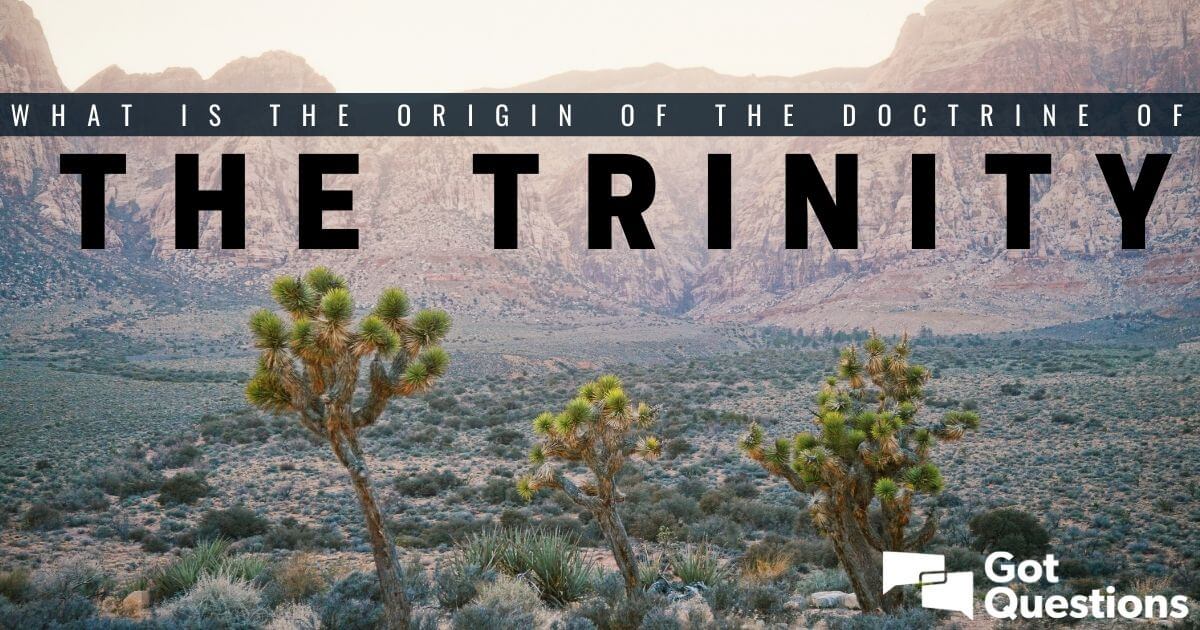
What is the origin of the doctrine of the Trinity? | GotQuestions.org
What is the origin of the doctrine of the Trinity? Did the early church believe in the Trinity? Does the doctrine of the Trinity come from the Bible?www.gotquestions.org
Your trinitarian source is advocating / defending orthodox trinitarianism. In orthodox trinitarianism Jesus is not a human person.
”The perfect human is not a human person.”
(Henry Karlson, “God Became Man Without a Human Self (Hypostasis)”)
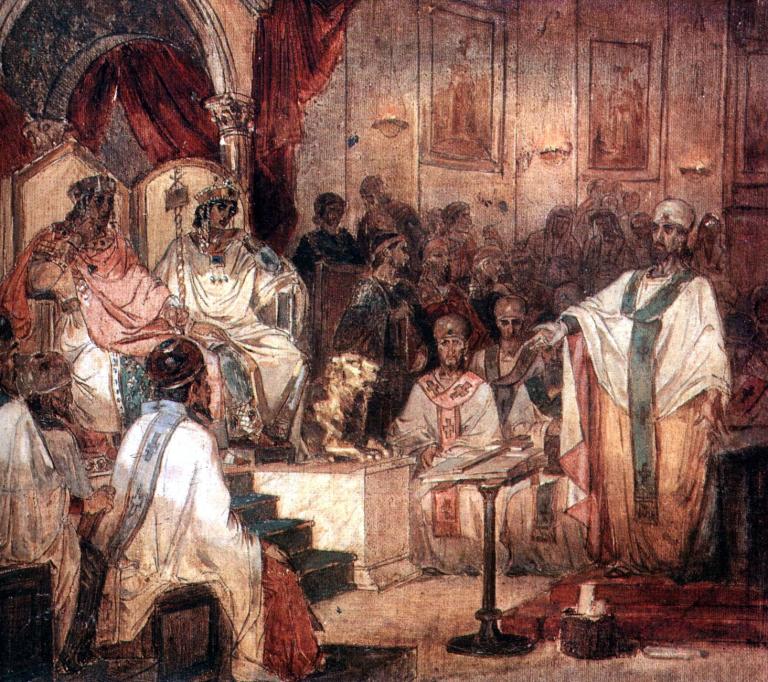
God Became Man Without A Human Self (Hypostasis)
There is one Lord, Jesus Christ, God who became man, a divine person who assumed humanity, not a human person, unto himself.
Anyone who undertakes to defend the Trinity must address the fact that trinitarianism teaches that Jesus is one person, a divine person, not a human person.
“… the real mystery, namely, that Jesus is truly human, yet he is not a human person, but a divine person, the Son of God, …”
(International Catholic University, “Personhood and Incarnation”)
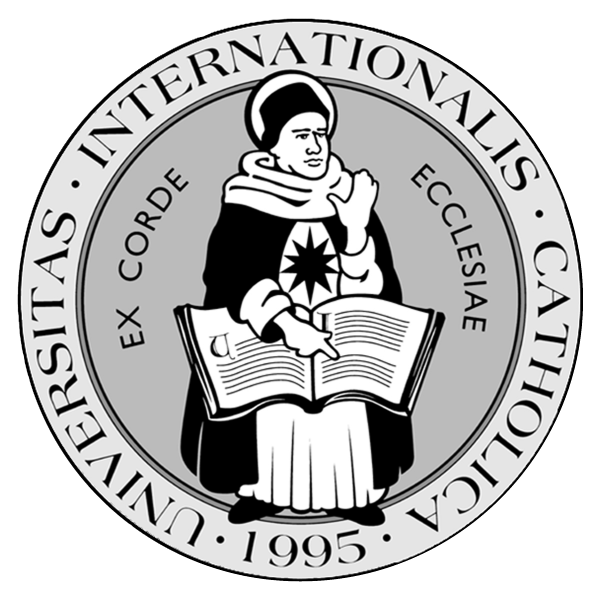
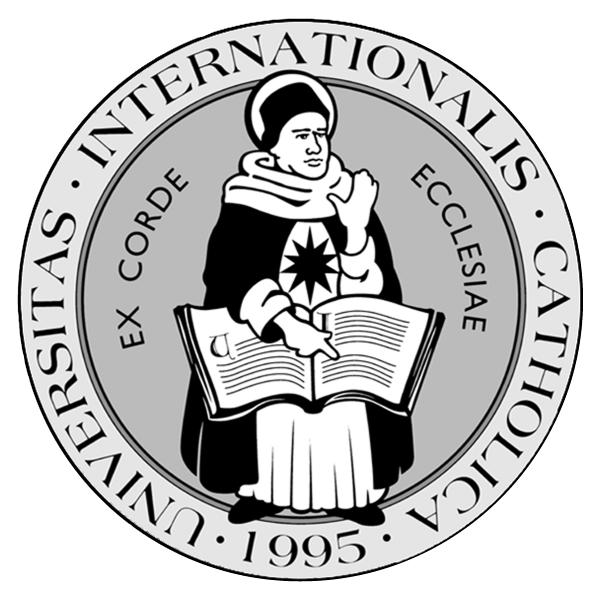 icucourses.com
icucourses.com
(International Catholic University, “Personhood and Incarnation”)

028-11: Personhood and Incarnation – International Catholic University
Embracing the ideals of Catholic education as laid out in Ex Corde Ecclesiae, the ICU makes it possible to learn from great Catholic professors on your own time.
 icucourses.com
icucourses.com
“It is important to remember that Jesus is not a human person like us; He is a divine Person.”
(Kenneth Baker, “The Hypostatic Union”)
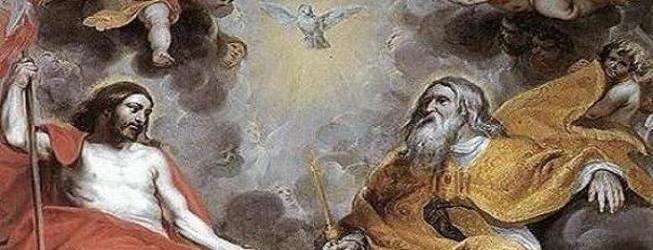
 www.hprweb.com
www.hprweb.com
How can we be expected to remember what we’ve not been taught?
Why isn’t the trinitarian clergy teaching this to those in their care? (To be fair, there are some in the trinitarian clergy who do. Their number is small.)
(Kenneth Baker, “The Hypostatic Union”)

The Hypostatic Union - Homiletic & Pastoral Review
The Hypostatic Union had a profound effect on Jesus’ human nature, as he is both true man and, also, God. Jesus is not a human person like us, but a
How can we be expected to remember what we’ve not been taught?
Why isn’t the trinitarian clergy teaching this to those in their care? (To be fair, there are some in the trinitarian clergy who do. Their number is small.)
Not all Trinitarians believe that. Rather that he was God and man. Fully human and fully GodA question for the trinitarian reader: When is the last time you heard your (or a) trinitarian pastor say, “Jesus is not a human person”?
Not all Trinitarians believe that. Rather that he was God and man. Fully human and fully God
Trinitarians who don’t believe it are trinitarians in name only. It has been the official position of the church since the 4th century.
We can’t defend trinitarianism without believing it.
- Status
- Not open for further replies.
Similar threads
- Replies
- 5
- Views
- 335
- Replies
- 1
- Views
- 258
- Replies
- 91
- Views
- 3K
- Locked
- Replies
- 209
- Views
- 4K
- Replies
- 35
- Views
- 1K

